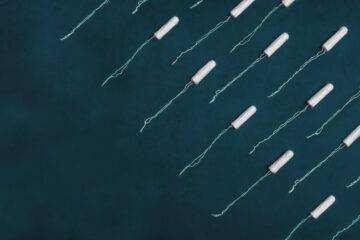How much exercise is optimal, from a fertility lens?
Question:
How much work out is optimal, from the lens of preserving your fertility and optimize your chance of having children?
Short answer:
Roughly 30 to 45 minute of moderate exercise per day; and occasional vigorous exercise once or twice per week (such as running, fast cycling or fast swimming) is optimal. However, too much exercise and being too thin can hurt the reproductive abilities in women.
Longer answer:
For men:
Testes function properly at a temperature that is 2 °C lower than that of the core body. Testes is a plural form referring to the organ that produces male reproductive cells. Spermatogenesis (the production or development of mature sperm) may be altered and even completely inhibited after the core body temperature is reached.
Elevated scrotal temperatures can potentially be expected in motor sports, cycling, or horseback riding. In other words, these sports can alter or even completely inhibit the production and development of sperm.
Additionally, intense physical activity may affect 1) the semen concentration; 2) the number of motile and morphologically normal sperm. This is because testicular heat stress, oxidative stress, improper nutrition, drug side effects, other diseases and injuries can affect spermatogenesis.
Some studies have found that loose-fitting clothing could potentially prevent higher scrotal temperatures during exercise.
For women:
Moderate and regular exercise can improve fertility and the chance of having a baby with ART (Assisted Reproductive Technologies).
To help all of us understand the process of pregnancy, we need to establish the foundation that ovulation is important for a woman to get pregnant.
Studies of the effects of exercise on fertility have found that
- vigorous exercise reduces the risk of ovulation problems
- moderate exercise decreases the risk of miscarriage and increases the chance of having a baby among women who undergo ART.
Polycystic ovary syndrome (PCOS) is a complex condition which is associated with infertility. Women with PCOS often have irregular or no periods at all, because they rarely ovulate. Like we discussed earlier, ovulation is important because it kicks off the process of potentially getting pregnant.
For overweight and obese women with PCOS, regular exercise can increase the frequency of ovulation which leads to more regular menstrual cycles. As ovulation becomes more frequent, the chance of conceiving increases.
On the other hand, too much exercise or being too thin could also stop ovulation and therefore hinder a woman’s ability to conceive a baby.
Key takeaway:
- Women and men: should ideally exercise about 30-45 minutes daily; and perform occasional vigorous exercise once or twice per week (such as running, fast cycling or fast swimming).
- Women:any physical activity is better than no physical activities at all. But too much exercise or being too thin can be detrimental to a woman’s ability to conceive as well.
- Men: if possible, potentially wear loose-fitting underwear during exercise, because it could potentially help increase the chance of having a baby
Disclaimer:
This article does not constitute medical advice. Please consult your doctor for your specific situation. It is written by Eggschain editors and medically reviewed by Hugh Taylor, MD, the Anita O’Keeffe Young Professor and Chair, Department of Obstetrics Gynecology and Reproductive Sciences at Yale School of Medicine and Chief of Obstetrics and Gynecology at Yale-New Haven Hospital. He is also Professor of Molecular, Cellular and Developmental biology at Yale University.
Source:
1)The Fertility Society of Australia
2)National Institute of health
3) National Institute of health
4) National Institute of health





